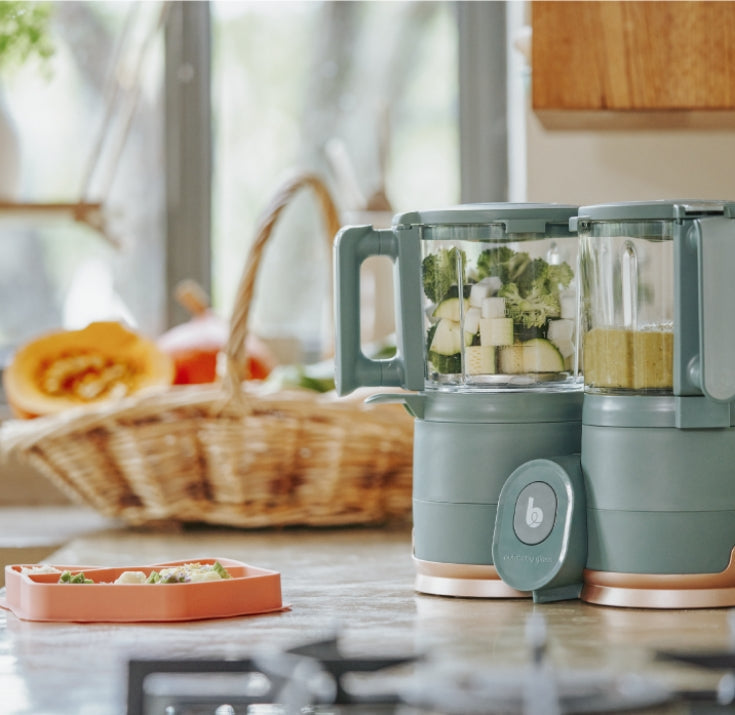If you’re currently weaning your baby or about to start, read our top weaning tips below to avoid common mistakes and make the process easier on both you and baby.
1. There's no need to wait 3 days before trying each new food. This is old advice more relevant to past years when babies were being weaned earlier. Introducing a different taste every day is perfect!
2. Babies don't need baby rice!Though baby rice can be useful to help soften strong flavours or to thicken up thin purees, there's no nutritional recommendation for it.
3. Even if you're not hungry, or in a rush, always try to sit and eat something with your baby at each meal as they learn from what they see. You don't have to eat a lot, and it doesn't have to be the same food - though research shows the same colour food as theirs can be helpful!
4. Try to resist keeping little hands away from the bowl as your baby will love to explore the food through touching and playing with it (as messy as it may be!)
5. Similarly, offer finger foods alongside spoon-fed meals wherever possible, as self-feeding will help develop your baby's dexterity and fine motor skills, as well as the muscles they need for chewing.
6. Get into the habit of checking food labels and ingredients lists, as even some baby foods have added sugars.
7. Low sugar "adult" breakfast cereals like Ready Brek and Weetabix are great for introducing texture to babies aged 6 months and over. Sweeten with fruit puree, mashed banana and berries, or chopped up pieces of fruit.
8. Get your baby used to the idea of a cup from six monthsby letting them play with it outside of mealtimes - when it is empty of course!
9. If your baby doesn't want to eat one day think about why this could be- are they teething, tired, poorly, full up from big milk feeds? Always respect your baby's appetite and don't push them. They'll probably be back on their food the following day.
10. When spoon-feeding your baby, have two spoons to hand - one for baby and one for you. Let them practice feeding themselves and whilst they are having a go with their spoon, load up the other and then swap!
11. It’s very normal for babies to refuse foods that they have enjoyed eating before. This can be extremely frustrating, but whatever you do don't give up trying. Keep on offering refused foods as the repeated exposure will pay off eventually.
------------------------------------------
Advice given by Julia Wolman RNutr.
Registered Nutritionist: www.juliawolman.co.uk / www.facebook.com/TheFamilyFoodCoachUK/
In association with Babymoov, May 2016






Leave a comment
This site is protected by hCaptcha and the hCaptcha Privacy Policy and Terms of Service apply.